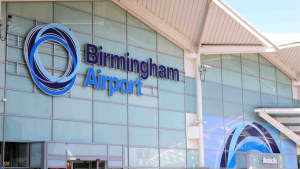Regional airports essential for extending hub capacity – CBI

A LACK of hub airport capacity could cost the UK’s economy up to £1.2bn a year in lost trade and must be tackled if the UK is to maintain its global competitiveness, the CBI has said.
In its response to the Government’s consultation, Developing a sustainable framework for UK aviation, the business group said having an international airport hub was vital to the economy, and that the Government’s plan must address the issue of capacity in South East England.
In addition to resolving the issue of hub capacity, the CBI has suggested there is scope for expansion in the UK’s regional airports. These also have the ability to drive economic growth, and were used by 40% of all UK passengers last year.
It has highlighted Birmingham Airport as one with major potential. It said Birmingham Airport had the capacity for 9m extra passengers now; and could take up to 21m in the coming years, thereby relieving the badly congested South East.
The under-used capacity, together with an extended runway, makes Birmingham the ideal venue for extra flights. The potential has also been highlighted in the case for building the £17bn HS2 high speed rail scheme.
Katja Hall, CBI chief policy director, said: “The UK’s international aviation hub at Heathrow is already operating at 98% capacity. The Government must explore all sensible ideas for resolving the need for more UK hub airport capacity, as well as addressing environmental and noise concerns, which industry is fully committed to.
“Linking Heathrow and Gatwick by high-speed rail is certainly not a viable solution. And ducking the issue would mean losing more trade to fast-growing hubs elsewhere in Europe.”
A hub airport is one where flights are organised in waves of arrivals and departures to allow large numbers of passengers to make a wide range of connections.
The business body said the aviation sector not only made a direct contribution of nearly £50bn to the economy and supported a tourism industry worth £115bn, it was also of huge importance to international trade.
Balancing environmental concerns with aviation growth is an important part of making a new sustainable framework credible and long-lasting. The CBI said it supported the inclusion of aviation in the EU’s Emission’s Trading Scheme from 2012.
“We need to be sure that UK businesses are able to take advantage of export opportunities in emerging markets in the years to come, as well as expand capacity and meet our environmental commitments,” added Ms Hall.
“Industry is already fully committed to reducing its environmental and noise impact. New technologies and air traffic systems are being developed which will enable aviation growth with no net increase in emissions.”









